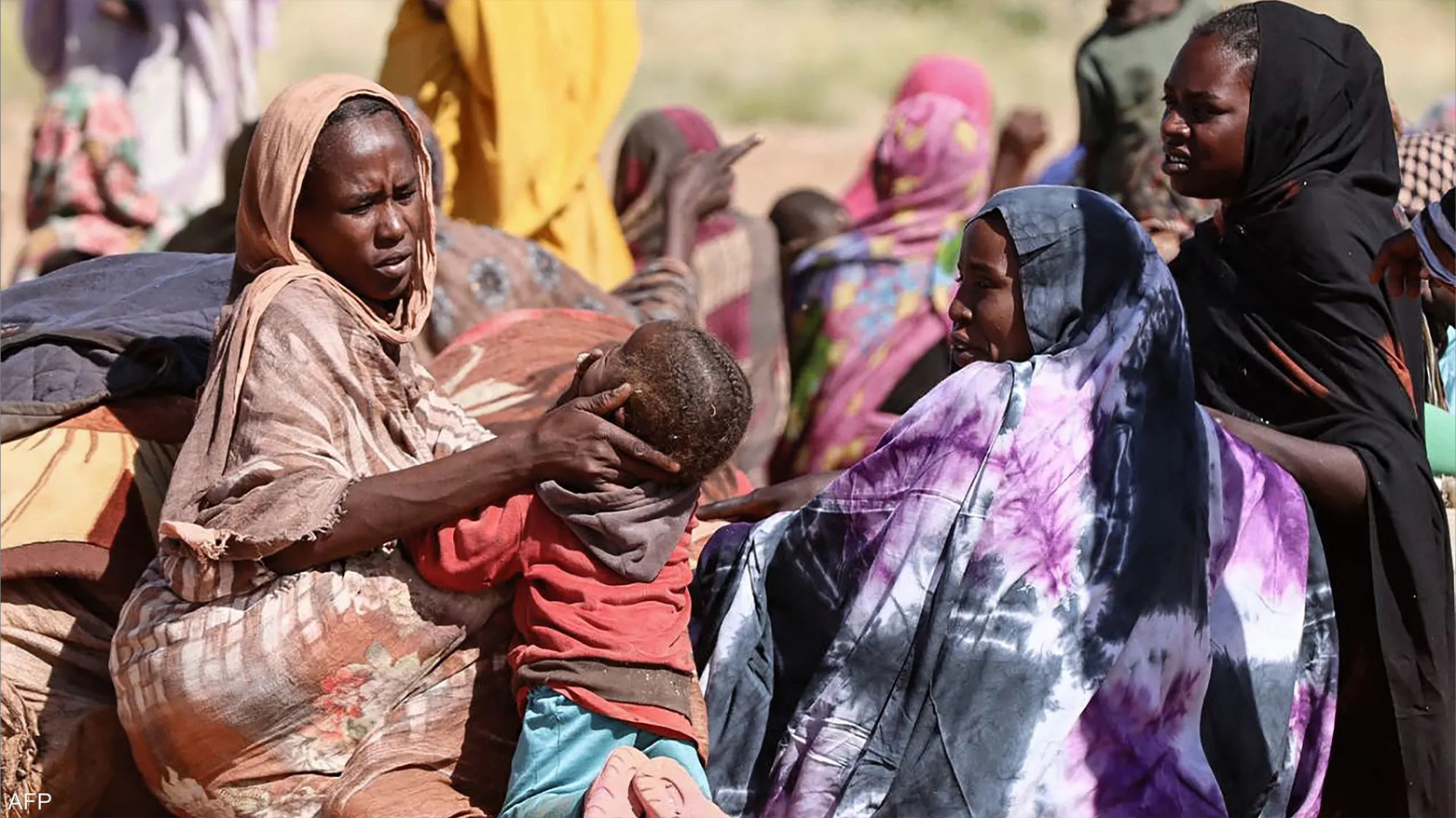15,000 Families Displaced in 2 Days as Sudan Spirals into Chaos
The war has killed tens of thousands and displaced over 12 million, fueling the world’s worst hunger crisis. In North Darfur, 1.7 million are displaced and two million face severe food insecurity.

ERBIL (Kurdistan24) – The humanitarian crisis in Sudan has reached a catastrophic tipping point, with mass displacement, famine, and violence accelerating across the country. According to the United Nations’ International Organization for Migration (IOM), fierce fighting in North Darfur has displaced more than 15,000 families from the town of Al-Malha in just 48 hours, as clashes between the paramilitary Rapid Support Forces (RSF) and the Sudanese Armed Forces (SAF) intensify.
The displacement in Al-Malha follows the RSF’s claim on Thursday that they had seized control of the strategic town, located near the Libyan border. Local activists in El-Fasher, the capital of North Darfur, reported at least 45 civilians killed in the attack. The RSF’s own statement claimed over 380 enemy fighters had been killed. Al-Malha is one of several contested areas in the vast desert expanse where the RSF and army-aligned Joint Forces have been locked in battle for months.
The fighting is part of a broader conflict that erupted in April 2023 between the RSF and SAF, plunging Sudan into one of the world’s worst humanitarian disasters. The war has killed tens of thousands and displaced over 12 million people, creating the planet’s largest hunger and displacement crisis. In North Darfur alone, nearly 1.7 million people are displaced and around two million face extreme food insecurity, according to UN agencies. Famine has already been declared in three displacement camps around El-Fasher, and projections suggest it could spread to five more areas by May, including the state capital itself.
Adding to the crisis, UNICEF has condemned the looting of vital humanitarian supplies from Al Bashair Hospital in Khartoum. Executive Director Catherine Russell described the theft of 2,200 cartons of therapeutic food for malnourished children as “outrageous and a direct attack on their survival.” The stolen items also included critical health supplies for pregnant women, newborns, and lactating mothers. The hospital, located in Jabal Awlia—an area already on the brink of famine—was among the last functioning health facilities in the region.
UNICEF had only recently succeeded in delivering the life-saving shipment in December 2024, the first humanitarian aid to the area in more than 18 months. However, continued fighting and insecurity have halted aid operations, pushing already vulnerable populations closer to catastrophe. Thousands have been displaced from the region, where supplies of food, medicine, and clean water have dwindled.
Meanwhile, in Khartoum and surrounding areas, civilians continue to bear the brunt of the war. According to the UN Human Rights Office (OHCHR), dozens of civilians, including aid workers, have been killed in artillery shelling and aerial bombardments. RSF fighters and affiliated militias have reportedly raided homes, committed summary executions, and looted community kitchens and clinics in eastern Khartoum. There are also growing allegations of sexual violence in neighborhoods such as Al Giraif Gharb.
Not to be outdone, SAF-aligned militias have reportedly engaged in similar abuses in Khartoum North (Bahri) and East Nile. Arbitrary arrests, looting, and continued airstrikes have turned urban areas into active war zones. On Monday, artillery shelling in Karari, north of Omdurman, killed several civilians and injured dozens, including children. A drone strike in East Khartoum’s Imtedaad Nasir area killed five women just days earlier.
In North Darfur, conditions in Zamzam displacement camp are also deteriorating rapidly. The camp is now under effective siege, with checkpoints blocking the flow of civilians and aid. According to the UN Office for the Coordination of Humanitarian Affairs (OCHA), water deliveries have stopped due to security risks, raising the specter of waterborne disease outbreaks among already malnourished and traumatized residents.
The UN and its agencies have renewed urgent calls for an immediate cessation of hostilities and unfettered humanitarian access. “We continue to call for full, unhindered humanitarian access to ensure lifesaving aid reaches those most in need,” said a spokesperson for OCHA. OHCHR echoed the plea, urging all warring parties and the states influencing them to act immediately to protect civilians and halt the culture of impunity.
As Sudan slides further into chaos, international observers warn that without decisive action, the country's humanitarian and security crises could spiral beyond recovery. The suffering of its children, women, and displaced communities now stands as a stark indictment of global inaction in the face of one of the century’s most harrowing conflicts.